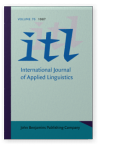Speech Act Functions
Dimensions of Communication and Meaning in The English Language in Nigeria
This paper examines samples of spoken data with a view to elucidating the problem of the performing of speech acts in a Second language context of English usage. The encoding and decoding of speech acts, the author shows, involve a network of cognitive processes in which the linguistic competence of the participants, their world knowledge, their psychological state, and their knowledge of socially and culturally relevant factors of the situation are accessed, activated, and put to work in the process of inferring the meaning and the speech act function of utterances; a process which is essentially one of semantic and pragmatic decision-making. For communication to succeed, participants in the communicative event must share mutual factual background information and be able to activate this when it proves relevant to the discourse at hand. Incompetence in the use of the target language may lead to the performance of an unintended speech act and the decoder's misinterpretation. Therefore, speakers of English in a Second language or multilingual context should make allowance for unintended speech acts, and should be particularly sensitive to the total context of communication.
References (11)
Adegbija, E.E.
(
1982) :
A Speech Act Analysis of Consumer Advertisement. Bloomington : Indiana University, Ph.D. Dissertation. University Microfilms No 8307973.

Adegbija, E.E.
(
1983) :
Review of Ballmer and Brennenstul's Speech Act Classification : A Study in the Lexical Analysis of English Speech Activity Verbs.
General Linguistics 23, 3:216–224.

Adegbija, E.E.
(
1984) :
Semantics in English as A Second Language. Ms to appear in
Adebisi Afolayan, ed.
Defining English as a Second Language. University of Ife ESL Studies Series.

Austin, J.L.
(
1962) :
How to do Things With Words. 2nd. ed.
J.D. Urmson and
Marina Sbisa. Cambridge, Massachusetts : Harvard University Press.

Bach, K. and R.M. Harnish
(
1979) :
Linguistic Com-munication and Speech Acts. Cambridge, Massachusetts : the MIT Press.

Faerch, C.
et al. (
1984) :
Learner Language and Language Learning. Clevedon, Avon : Multilingual Matters Ltd.

Grice, H.P.
(
1975) :
Logic and Conversation. In
P. Cole and
J.L. Morgan, eds.
Syntax and Semantics, vol. 31 : Speech Acts. New York : Academic Press.

Holmes, Janet
(
1984) :
Modifying Illocutionary Force.
Journal of Pragmatics 81 1984:345–365.


Searle, J.R.
(
1969) :
Speech Acts : An Essay in the Philosophy of Language. Cambridge : Cambridge University Press.


Searle, J.R.
(
1979) :
Expression and Meaning Studies in the Theory of Speech Acts. Cambridge : Cambridge University Press.


Strawson, P.F.
(
1969) :
Intention and Convention in Speech Acts. In
Thomas M. Olhewsky, ed.
Problems in the Philosophy of Language. New York : Holt, Rinehart and Winst Inc.

Cited by (3)
Cited by 3 other publications
Uwen, God’sgift Ogban & Stella Ikhesor Ekpe
2023.
Sociolinguistic configuration of a regimented workforce: a study of the Nigerian army’s workout songs.
International Journal of Multilingualism ► pp. 1 ff.

Ioratim-Uba, Godwin Aondona
Adegbija, Efurosibina E.
1989.
Teaching English in Nigeria: The importance of the pragmatic and sociolinguistic context.
Language, Culture and Curriculum 2:3
► pp. 195 ff.

This list is based on CrossRef data as of 4 july 2024. Please note that it may not be complete. Sources presented here have been supplied by the respective publishers.
Any errors therein should be reported to them.
